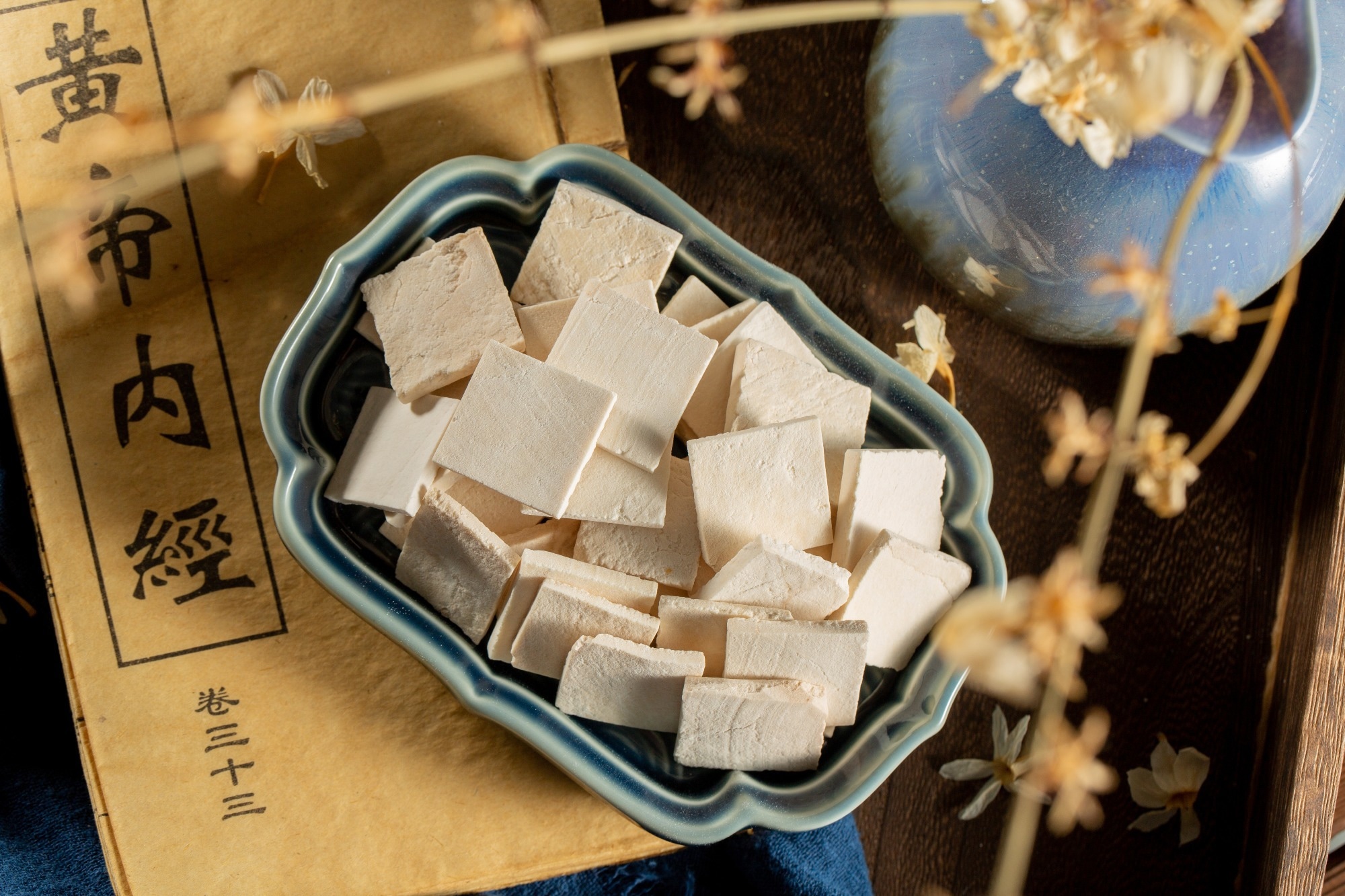The prevalence of sleep disorders is estimated at 87%, which may have been exacerbated during the coronavirus disease 2019 (COVID-19) pandemic. People may contemplate using sleep-inducing medications when conventional therapies prove ineffective against chronic insomnia. Drugs for insomnia generally act rapidly, but prolonged usage can have adverse effects.
Excess use of sleeping medicines can result in exhaustion, poor focus and memory, and a higher risk of accidents. On the other hand, medicinal plants and natural sleep aids can be helpful. Currently, herbs are being explored for promoting sleep. A growing interest in sleep health is the production of functional foods that can facilitate sleep. As such, a re-evaluation of compounds used in Eastern medicine is underway for foods that help promote sleep.
P. cocos, a type of mushroom used in traditional Chinese medicine, is found near the roots of pine trees in Korea, China, Japan, and North America. It has been intensively studied for its antioxidant, anti-inflammatory, anti-tumor, anti-aging, and cognitive effects. It comprises pachymic acid, pinylic acid, tumulosic acid, cortoic acid, and poricoic acid, among others.
 Study: Efficacy of Poria Cocos Extract on Sleep Quality Enhancement: A Clinical Perspective with Implications for Functional Foods. Image Credit: timekeep / Shutterstock
Study: Efficacy of Poria Cocos Extract on Sleep Quality Enhancement: A Clinical Perspective with Implications for Functional Foods. Image Credit: timekeep / Shutterstock
Pachymic acids can help maintain physical and cognitive homeostasis, promote mental equilibrium, and enhance diuretic function. Besides, it promotes serotonin release; serotonin can alleviate anxiety, depression, and stress and could help treat or prevent insomnia. Pachymic acid has been shown to modulate sleep patterns by stimulating the GABAergic system.
The study and findings
In the present study, researchers assessed the efficacy of a P. cocos extract in enhancing sleep quality. The extract was prepared using 75% ethanol. Participants were instructed to take two capsules of 800 mg extract every day at night. Individuals with sub-optimal sleep quality were defined as having a score of ≥ 5 on the Pittsburgh Sleep Quality Index (PSQI) and a score of 8-21 on the Insomnia Severity Index (ISI).
Individuals using medicines or supplements to improve sleep and those likely to smoke or consume alcohol during the intervention period were excluded. Additionally, subjects using anti-hyperlipidemic drugs, beta-blockers, bronchodilators, and corticosteroids were excluded. Each participant underwent a polysomnography and completed a questionnaire about sleeping habits at participation.
The questionnaire and polysomnography were repeated after the intervention. The Wilcoxon signed-rank test was used to assess the stability and efficacy of the intervention. Twenty-one insomniac individuals, aged, on average, 55, were included in the study; all participants had complaints of sleeping troubles, and none had prescriptions. The intervention significantly reduced the ISI and improved sleep quality.
The mean ISI and PSQI scores decreased from 13 and 8.09 pre-intervention to 10.5 and 6.3 post-intervention, respectively. Sleep efficiency was also higher after the intervention than before. Total sleep time (TST) increased significantly from an average of 327.4 minutes pre-intervention to 356.5 minutes post-intervention. Time spent in rapid eye movement (REM) sleep during TST was also significantly higher post-intervention.
Latency to REM and waking after sleep onset (WASO) were also significantly lower after the intervention than before. The increased duration of REM sleep and reduced transition time from non-REM to REM sleep were significant post-intervention, indicating enhancements in sleep. Blood tests revealed no notable changes, except for a significant decline in potassium levels, after the intervention.
Conclusions
The study showed that P. cocos extract increased sleep duration and improved subjective sleep quality in individuals with insomnia. The researchers also evaluated objective sleep quality and found increased TST and reduced WASO post-intervention. Although blood tests showed no notable differences before and after the intervention, only some participants volunteered to be tested, limiting generalizability.
The study’s limitations include the lack of controls and sub-group analysis. Further, only a single dose (800 mg) was evaluated, focusing on pachymic acid, without considering other active constituents in P. cocos. Thus, additional investigations are necessary to further validate the current findings in larger samples and determine the effects of other active compounds in P. cocos.